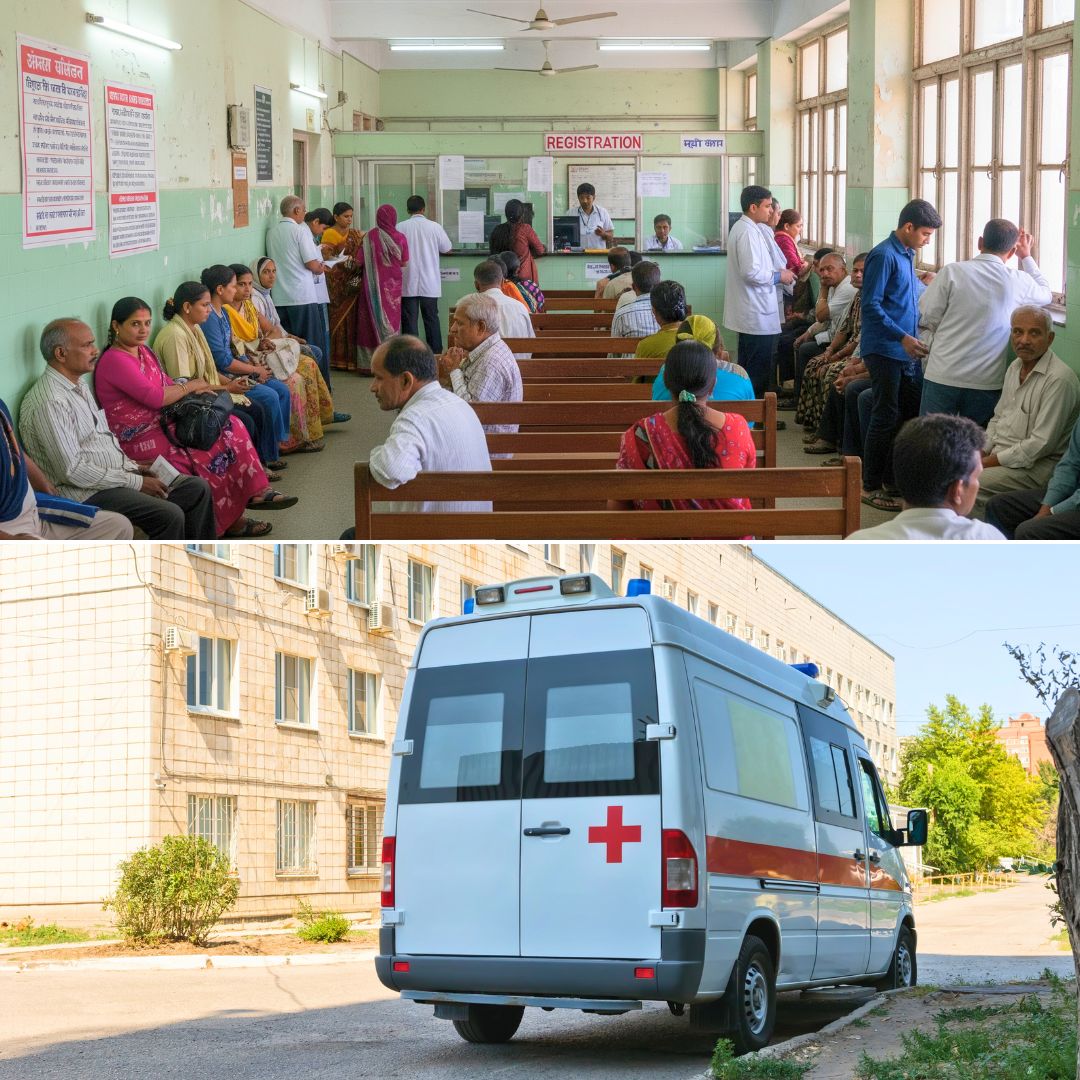In Chhattisgarh’s Gariaband district, a family was reportedly forced to carry the body of 60-year-old Ichhabai Patel on a cot for approximately 2.5 kilometres after a government hospital allegedly refused to provide a hearse. The ordeal took place on Monday after the woman died during treatment at the Community Health Centre in Amlipadar.
The family’s plight drew widespread outrage after a video showed men carrying the body through rugged terrain. Officials later explained that the local hearse was unavailable due to an accident, and assured steps are underway to prevent recurrence.
The Family’s Harrowing Journey and Administrative Response
Ichhabai Patel, a resident of Nayapara village in the Mainpur block of Gariaband district, had been admitted to the CHC in Amlipadar for treatment. Following her death, relatives struggled to arrange suitable transport for the body. According to her relative, Dipchand Patel, despite repeated requests, the hospital staff refused to provide a hearse, compelling them to carry the body themselves on a cot over uneven roads to reach their village. Private vehicles were out of financial reach, forcing this desperate act. A local video capturing this scene quickly went viral, sparking widespread condemnation and demands for accountability.
District Collector Bhagwan Singh Uikey clarified that the hearse vehicle stationed at the CHC was involved in an accident and thus was unavailable. Another hearse was being dispatched from Deobhog, about 26 kilometers away, which unfortunately led to the delay. Uikey announced an investigation into the matter and directed local authorities to ensure every government hospital is better equipped to offer prompt transport services for deceased patients to spare families any such trauma in the future.
Healthcare Gaps and Rural Challenges
This incident highlights the infrastructural challenges faced by rural healthcare centres across India, where essential resources like hearses and ambulances are limited or poorly maintained. The lack of timely services adds to the grief and hardship of bereaved families, often pushing them to take extreme steps. Such events reveal gaps in emergency support systems that need urgent attention, including improving healthcare transportation logistics and strengthening rural health infrastructure.
Further, this tragic episode underscores the need for greater sensitivity and support from healthcare providers towards patients’ families. Government facilities must not only focus on medical care but also on dignified handling of deaths, ensuring respect and empathy during critical moments. Transparent communication and swift administrative action can reduce distress and build public trust.
The Logical Indian’s Perspective
This painful scenario reminds us of the duty borne by public health systems to uphold human dignity in all circumstances, especially in death. Compassionate care and adequate infrastructure must go hand in hand to serve communities, leaving no family to suffer indignity due to systemic lapses.
It is a collective responsibility of officials, healthcare workers, and society to create mechanisms that offer both medical support and humane treatment consistently.










